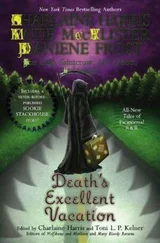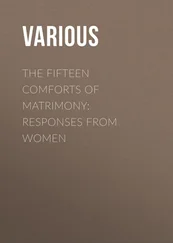Various - Excellent Women
Здесь есть возможность читать онлайн «Various - Excellent Women» — ознакомительный отрывок электронной книги совершенно бесплатно, а после прочтения отрывка купить полную версию. В некоторых случаях можно слушать аудио, скачать через торрент в формате fb2 и присутствует краткое содержание. Жанр: Биографии и Мемуары, foreign_antique, на английском языке. Описание произведения, (предисловие) а так же отзывы посетителей доступны на портале библиотеки ЛибКат.
- Название:Excellent Women
- Автор:
- Жанр:
- Год:неизвестен
- ISBN:нет данных
- Рейтинг книги:5 / 5. Голосов: 1
-
Избранное:Добавить в избранное
- Отзывы:
-
Ваша оценка:
- 100
- 1
- 2
- 3
- 4
- 5
Excellent Women: краткое содержание, описание и аннотация
Предлагаем к чтению аннотацию, описание, краткое содержание или предисловие (зависит от того, что написал сам автор книги «Excellent Women»). Если вы не нашли необходимую информацию о книге — напишите в комментариях, мы постараемся отыскать её.
Excellent Women — читать онлайн ознакомительный отрывок
Ниже представлен текст книги, разбитый по страницам. Система сохранения места последней прочитанной страницы, позволяет с удобством читать онлайн бесплатно книгу «Excellent Women», без необходимости каждый раз заново искать на чём Вы остановились. Поставьте закладку, и сможете в любой момент перейти на страницу, на которой закончили чтение.
Интервал:
Закладка:
VII.
FAMILY CARES AND TRIALS
In the autumn her husband took her a journey into the north of England, going by Warwick, Stratford-upon-Avon, Chester, Liverpool, and the Lakes, some of the excursions at which she went on horseback. She was even able to climb Skiddaw, so that her health had been much restored by the expedition. They were glad to get back to their comfortable home, mother and child both better for the trip. Soon after their return, her brother Samuel came to reside at Mildred's Court, to learn details of the banking business, and it was to both a great pleasure to be near one another. A second girl was born in March, 1803; and altogether she had in future years a very large family, eleven sons and daughters; regarding which it is sufficient to say that the succession of illnesses caused so much nervousness and debility, that we can only the more marvel at the indomitable spirit with which she afterwards undertook the labours of charity and beneficence which have made her name so famous. There were also, besides her personal illnesses, many events of trial and of bereavement, as must necessarily happen where there are numerous relatives. Writing at Earlham on the 20th of August, 1808, she says, "I have been married eight years yesterday. Various trials of faith and patience have been permitted me; my course has been very different from what I expected; and instead of being, as I had hoped, a useful instrument in the Church militant, here I am, a careworn wife and mother, outwardly nearly devoted to the things of this life. Though, at times, this difference in my destination has been trying to me, yet I believe those trials that I have had to go through have been very useful, and brought me to a feeling sense of what I am: and at the same time have taught me where power is, and in what we are to glory; not in ourselves, nor in anything we can be, or do; but we are only to desire that He may be glorified, either through us, or others, in our being something or nothing, as He may see best for us."
That same year in late autumn, her dear father-in-law Fry was at Mildred's Court, very ill; and he died there, being carefully and tenderly nursed by his daughter-in-law. She also, at risk to her own family, went to nurse her sister Hannah, in what turned out to be scarlet fever, about which she says, that "she did not know what malady it was when she went; and that she was the only sister then at liberty to wait on her." Through God's mercy, no harm came to her own family from being there, and no one else took the complaint. "This I consider," she says, "a great outward blessing. May I be enabled to give thanks, and to prove my thankfulness by more and more endeavouring to give up body, soul, and spirit, to the service of my beloved Master."
In February, 1809, she and her husband left Mildred's Court to occupy the house at Plashet; to her a pleasant change from the smoke and din of the great city. Here, her sixth child, a boy, was born in autumn of that year. Shortly afterwards she was summoned to Earlham, where she witnessed the death of her own father. It was a heavy blow to her, but she had the satisfaction of finding that his mind was at peace when he drew near his end. "He frequently expressed that he feared no evil, but believed that, through the mercy of God in Christ, he should be received in glory; his deep humility, and the tender and loving state he was in, were most valuable to those around him. He encouraged us, his children, to hold on our way; and sweetly expressed his belief that our love of good (in the degree we had it) had been a stimulus and help to him." At the meeting before the funeral she resolved to say nothing, but her uncle Joseph spoke words of comfort and encouragement; and then she could not refrain from falling on her knees, and exclaiming, "Great and marvellous are Thy works, Lord God Almighty; just and true are all Thy ways, Thou King of saints; be pleased to receive our thanksgiving." She could say no more, though intending to express thankfulness on her beloved father's account. The great tenderness of her uncle gratified her, "and my husband," she adds, "has been a true helpmate and sweet counsellor."
VIII.
WORK AT PLASHET
As soon as they were settled at Plashet, Elizabeth Fry formed and carried out various plans for the poor. She established a girls' school for the parish of East Ham, of which Plashet is a hamlet. The clergyman and his wife gave their help, and a school of about seventy girls was soon busily at work. The bodily wants of the poor claimed her attention. A depot of calico and flannel was always ready, besides outer garments. There was a cupboard well stocked with medicines. In the winter, hundreds of the destitute poor had the benefit of a soup kitchen, the boiler of an outhouse being applied to this use. About half a mile off, on the high road between Stratford and Ilford, there was a colony of Irish, dirty and miserable, as such settlements in England usually are. Some she induced to send their children to school, and, with the consent of the priest, circulated the Bible among them. Once when the weather was extremely cold, and great distress prevailed, being at the time too delicate to walk, she went alone to Irish Row, in the carriage literally piled with flannel petticoats for the poor women, others of the party at Plashet walking to meet her and help in the distribution. Her children were trained as almoners very young, and she expected them to give an exact account of what they gave, and their reasons for giving. She was a very zealous and practical advocate for vaccination, having been taught by the celebrated Dr. Willan, one of the earliest and most successful followers of Dr. Jenner.
It was an annual custom for numbers of gipsies to pitch their tents in a green lane near Plashet, for a few days, on their way to Fairlop Fair. The sickness of a child causing the mother to apply for relief, led Elizabeth Fry to visit the camp; and ever after she was gladly welcomed by the poor wanderers, to whom she gave clothing and medicines, and friendly faithful counsel. To those who could read she gave Bibles or Testaments, and little books or pictures to the children. Thus she ever abounded in good works for the benefit of others. All this she did in intervals snatched from home duties, there being in the house a constant succession of company and employments to occupy her. For her children she prayed that they might grow in favour with their Heavenly Father, by walking in humility and in the fear of God.
Such was the routine of work and duty at Plashet for several years after she went to live there. She had interruption from various illnesses in her family, five of her children being ill at one time; at other times overbusied with domestic duties, as many as eighteen, in addition to the family, once sleeping at the house. At the time of the Yearly Meeting she had to entertain many visitors in London at Mildred's Court. There were also occasional visits to Norfolk, during one of which she took active part in founding the Norfolk and Norwich Bible Society. The meeting at which this was inaugurated in 1811 was a most successful one. Old Bishop Bathurst spoke with much decision and liberality, and he was supported by many of the clergy, and ministers of all denominations, the Mayor of Norwich presiding. About £700 was subscribed at the meeting. Mr. Joseph Hughes, one of the secretaries, who, with his venerable colleague Dr. Steinkopff, arranged the meeting, in an account written of it, speaks of "a devout address by a female minister, Elizabeth Fry, whose manner was impressive, and whose words were so appropriate, that none present can ever forget the incident, or even advert to it without emotions alike powerful and pleasing. The first emotion was surprise; the second, awe; the third, pious fervour." Such was the impression made by the hearty words spoken by Elizabeth Fry.
Читать дальшеИнтервал:
Закладка:
Похожие книги на «Excellent Women»
Представляем Вашему вниманию похожие книги на «Excellent Women» списком для выбора. Мы отобрали схожую по названию и смыслу литературу в надежде предоставить читателям больше вариантов отыскать новые, интересные, ещё непрочитанные произведения.
Обсуждение, отзывы о книге «Excellent Women» и просто собственные мнения читателей. Оставьте ваши комментарии, напишите, что Вы думаете о произведении, его смысле или главных героях. Укажите что конкретно понравилось, а что нет, и почему Вы так считаете.












